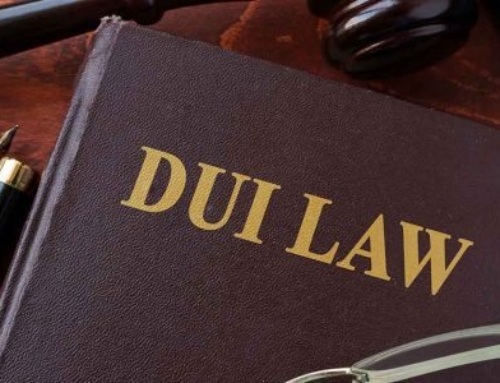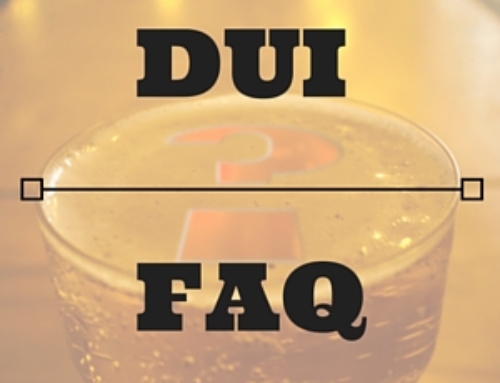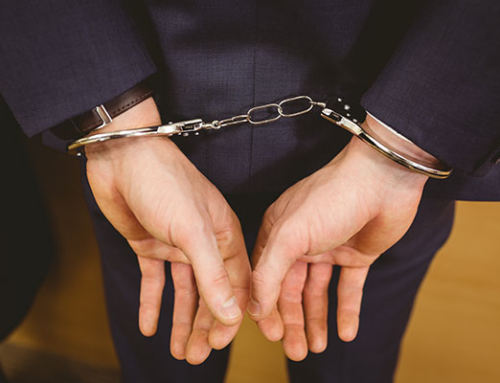You are probably experiencing stress about your arrest and the possible consequences of being convicted. Remember being arrested for a crime doesn’t necessarily mean that you will be convicted. You are innocent until proven guilty according to law. In this blog, we are going to discuss what you need to do after the arrest.
Your first court date is called an Arraignment. This is when you are formally “charged” with a crime and told what the charges will be. You would also enter a plea to the charges (normally not guilty) and other dates are set. At the arraignment an accused in custody can ask the judge for release of custody or for a reduction in bail. If your case is a misdemeanor, and you’ve retained an attorney to represent you, it’s very likely that you will not have to appear in court at your arraignment per Penal Code section 977. You must confirm this with your attorney just prior to your court date, as some courts require a notarized PC 977 waiver, advisement of rights, and or agreement. If your case is filed as a felony, you must appear at each and every court date. After the arraignment, a pre-trial hearing or readiness conference is set two to six weeks later. This is where your attorney will try to negotiate a settlement of your case.
After your arraignment (felony or misdemeanor) your attorney should obtain and mail you a police report (discovery), scientific and blood alcohol evidence as well as any other evidence the District or City Attorney’s office will want to use against you along with a letter stating when your next court date or pre-trial hearing is set. Upon receipt you should then immediately set an appointment to discuss these materials with your lawyer.
On some charges, such as possession of small amounts of illegal drugs, the court may allow you to attend a diversion program and after successful completion of the program the charges are dismissed. An experienced criminal defense attorney can be helpful in assisting an accused in applying for diversion.
The pre-trial hearing is the negotiation hearing and depending on your case; your attorney may at this time (with your permission) negotiate the settlement of your case. On the other hand, they may need additional information and further discussion with you and the prosecuting attorney before resolving your case.
Most attorneys would appreciate all witness information, drinking pattern (if charged with DUI), written summaries, photos and any other evidence you have to assist them. before your pre-trial hearing.
Eventually, if the case is not settled by way of diversion, dismissal or plea bargaining, a misdemeanor case is set for a jury trial. Depending on the circumstances of your case, you may decide to proceed to a Jury Trial rather than settle. An experienced Trial Attorney should be happy to explain the trial process to you and fight for your rights through trial. Trial preparation should also be discussed in detail.
A felony case is first set for a preliminary hearing. At that hearing, the prosecuting agency must present evidence that a crime was committed and that the accused committed it. Under the present system, the judge almost always finds reasonable cause to continue the prosecution. After the preliminary hearing, another arraignment is scheduled where future court dates are set. Eventually, if the case is not settled then a trial date is set. In both misdemeanor and felony cases, the accused and the prosecution both have a right to demand a jury trial.
At a jury trial, the guilt or innocence of the accused is decided by twelve fair and impartial jurors. The jurors in a criminal case must unanimously agree on the verdict. If not, as to any counts where there is not an agreement (hung jury) then the judge declares a mistrialand a future trial is held unless the case is plea bargained in the interim. At trial, the accused has a right to confront and cross-examine all witnesses against him or her. The accused has the right to testify or remain silent and to subpoena witnesses to testify free of charge. Of course, at all stages of the proceedings an accused has the right to a lawyer.
Once your case is resolved, your attorney should provide you with a very detailed “final letter” and mail it to you so that you understand any obligations and deadlines you may have to the court, so as to avoid an arrest warrant.
More questions? Ask our Criminal Defense Attorneys in Gilbert!
Hiring an experienced criminal defense lawyer to handle your case will be extremely beneficial. Phoenix criminal defense attorney Jonathan Warshaw has over 20 years of experience in the Arizona criminal justice system, and can help you take on the powerful state or federal attorneys trying to put you in jail. Mr. Warshaw have handled numerous criminal cases and can provide you with the attention, advice and guidance you need to get through this difficult and often overwhelming process. Please give us a call today at (480) 390-2537.






